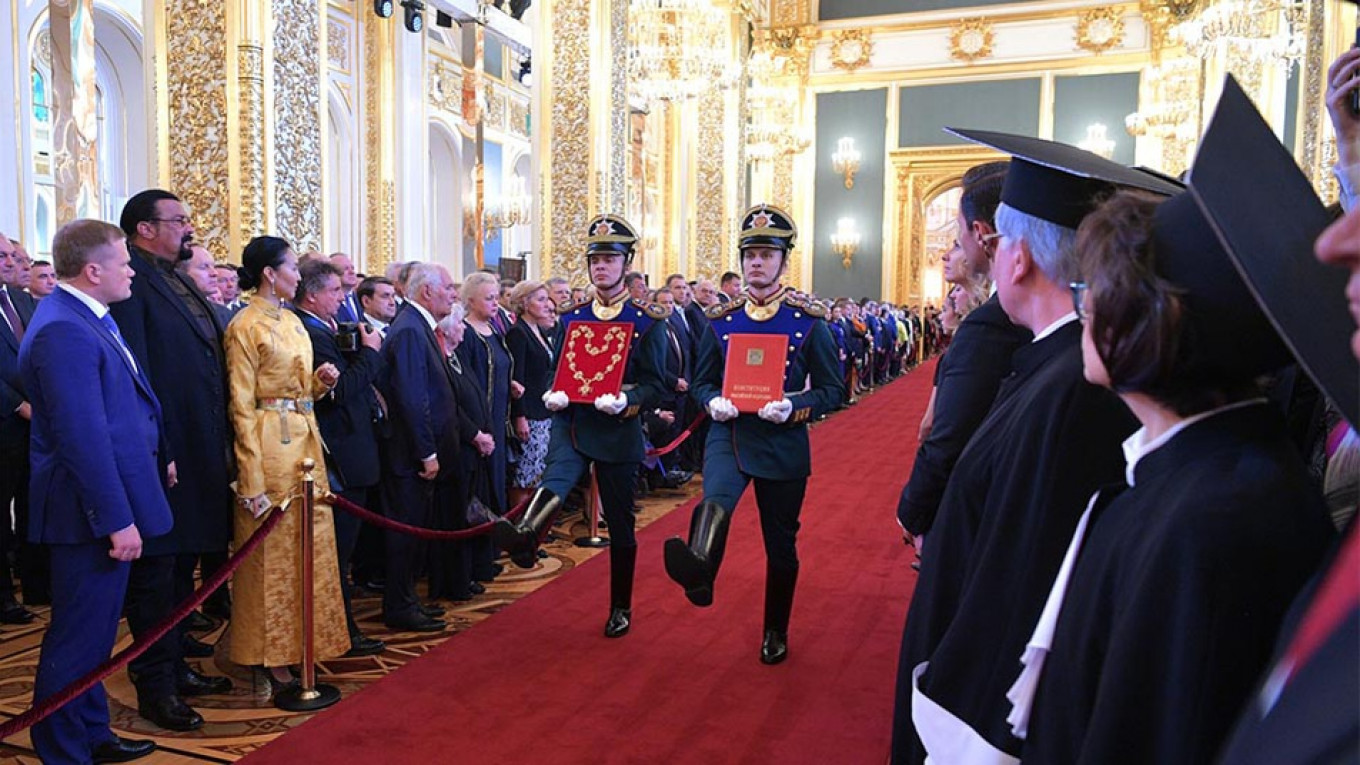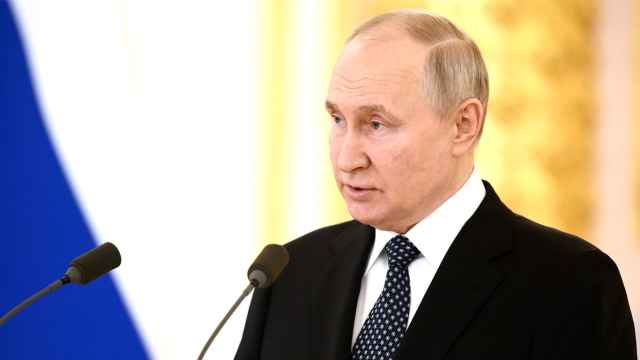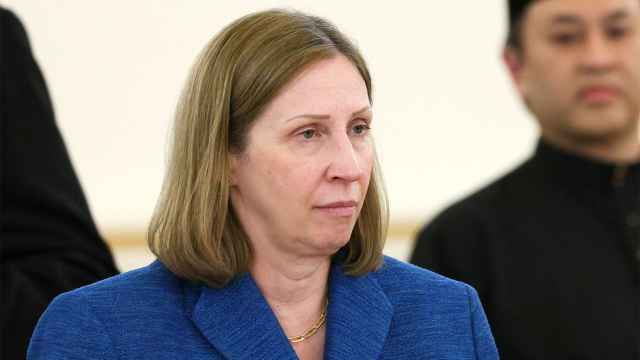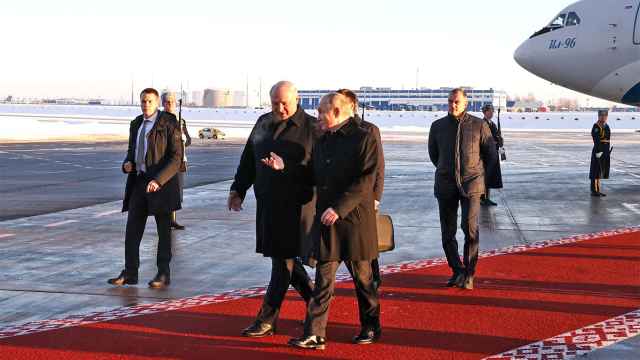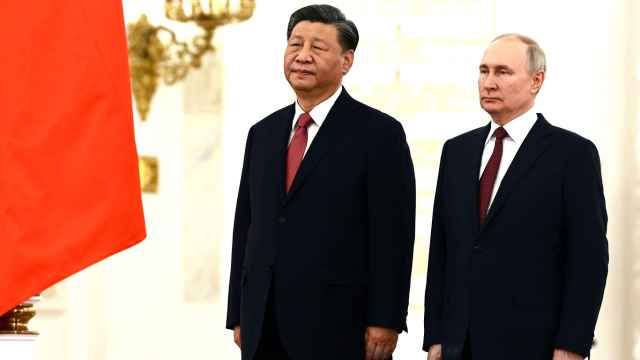The speaker of Russia’s parliament raised the possibility of changing the constitution as speculation grows that the Kremlin is considering ways to allow President Vladimir Putin to remain in power beyond the end of his current term, when current law requires him to step down.
“This is about the transfer of power,” said Gleb Pavlovsky, a political analyst and former Kremlin aide. “Putin encourages this game, dropping ambiguous hints.
The comments from Vyacheslav Volodin, speaker of the State Duma and a top member of the ruling party, at a scripted Kremlin meeting with Putin late Tuesday were vague and didn’t mention succession. But analysts said they showed the authorities already are preparing the ground for changes before the end of Putin’s current term in 2024.
“There are questions in society, esteemed Vladimir Vladimirovich,” Volodin said, addressing Putin in the respectful form, according to a Kremlin transcript. “This is the time when we could answer these questions, without in any way threatening the fundamental provisions” of the constitution, he added. “The law, even one like the Basic Law, isn’t dogma."
Putin Cautious
The current constitution was drafted 25 years ago, Volodin noted. “That was a very difficult time. A time when the state stood on the edge of collapse, when social obligations weren’t fulfilled, when our citizens lost faith in the authorities.” He proposed involving Constitutional Court judges and other legal experts in an effort to look at “how the Constitution and the norms of development of the Constitution suit the tenets that were passed."
The official transcript doesn’t include any mention of Putin’s response to Volodin’s proposal. The Kremlin’s tight control over the political system would make it easy to approve constitutional changes if Putin backed them.
“There’s no position on this issue yet” at the Kremlin, presidential spokesman Dmitry Peskov said Wednesday when asked about Volodin’s comments, adding that no work is underway on possible amendments at the moment.
When he was reelected to his current six-year term in March, Putin said, “At present I don’t plan any constitutional reforms.” He brushed off a question about whether he might run again in 2030, as allowed by current law. “What am I going to do, stay until I’m 100 years old? No."
But speculation over the possibility of amendments continues. Earlier this month, Putin said the constitution is “not some fossilized legal construct but a living, developing organism.” At his annual press conference last week, Putin said any changes to the Basic Law are “a matter for broad civic discussion,” though he wasn’t specifically asked about amendments to allow him to remain in power.
Term Limits
Political analysts and government insiders have been discussing the possibility of constitutional changes for months as the focus on the end of Putin’s term grows. Putin, now 66 years old and apparently healthy, has suggested he doesn’t plan to stay beyond that time, but few see a suitable replacement for the man who has ruled Russia virtually unchallenged for the last 18 years.
“The general sense is that there’s no one to replace Putin as the guarantor of the system,” said Valery Solovei, a political scientist at the Moscow State Institute for International Relations. “None of the potential candidates is in a position to maintain the ‘sacred ties’ to the people. So the best option is seen as a change in the configuration of the government to ensure Putin remains the center of decision making."
Among the hypothetical possibilities would be to elevate an advisory body called the State Council to become the supreme authority with Putin at its head, according to analysts. The presidency could remain, but stripped of many of its powers, Solovei said. Other options also are possible, he noted, saying the process of amending the constitution could begin in 2020.
A Message from The Moscow Times:
Dear readers,
We are facing unprecedented challenges. Russia's Prosecutor General's Office has designated The Moscow Times as an "undesirable" organization, criminalizing our work and putting our staff at risk of prosecution. This follows our earlier unjust labeling as a "foreign agent."
These actions are direct attempts to silence independent journalism in Russia. The authorities claim our work "discredits the decisions of the Russian leadership." We see things differently: we strive to provide accurate, unbiased reporting on Russia.
We, the journalists of The Moscow Times, refuse to be silenced. But to continue our work, we need your help.
Your support, no matter how small, makes a world of difference. If you can, please support us monthly starting from just $2. It's quick to set up, and every contribution makes a significant impact.
By supporting The Moscow Times, you're defending open, independent journalism in the face of repression. Thank you for standing with us.
Remind me later.


